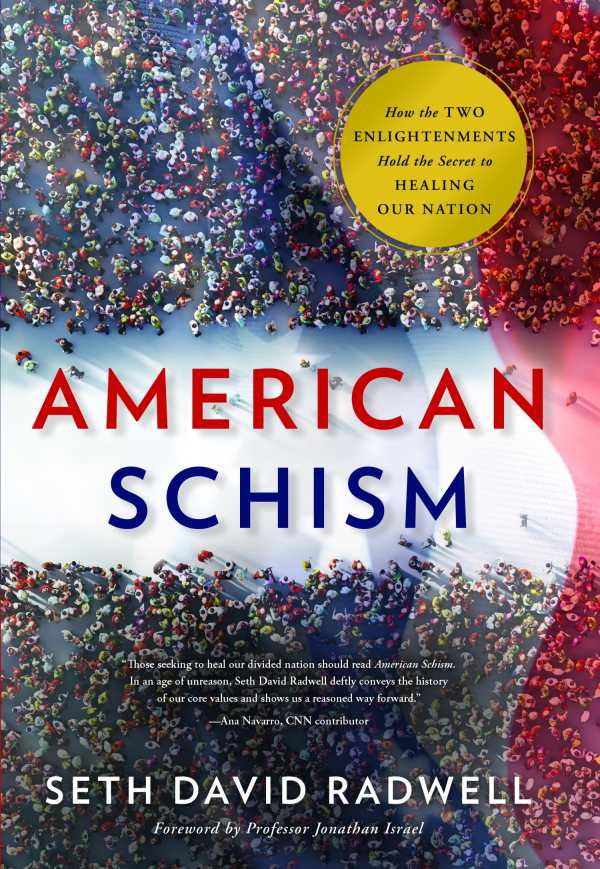American Schism
How the Two Enlightenments Hold the Secret to Healing Our Nation
Strong historical arguments help to put present struggles into proper focus in American Schism.
Seth David Radwell’s powerful book American Schism concerns the historical underpinnings of a splintered American society.
Radwell asserts that the US’s foundations were influenced by Enlightenment philosophy, but also acknowledges that this included a range of ideas, from how to organize governments to how to understand property rights. Indeed, the text says, America represents not one take on Enlightenment ideals, but two, and the differing philosophical ideas that contributed to its formation have put it at war with itself ever since.
Here, the fathers of the American Revolution are represented as much more divided than people commonly understand. Some, like John Adams, represented moderate Enlightenment views; others, like Thomas Jefferson, had more radical perspectives. So while moderate Enlightenment thinkers advocated a status-quo approach to maintaining hierarchical power, radical thinkers advocated for more power-sharing among the people. These two styles led to different understandings about who governs, and what the role of government should be in society, problems for which there remain no easy answers.
The book’s three sections start with the basics, showing what the Enlightenment was and focusing on the important developments in both the US and Europe. It then considers America’s evolution, from 1776 into the present, highlighting developments like the organization of the Conservative Coalition. Radwell’s engrossing philosophical reasoning is also concerned with the Trump era, whose roots the book locates in the populism of the distant past. Indeed, the book is convincing in arguing that differing Enlightenment ideals continue to drive political divisions. Still, it works toward a hopeful vision for what the US could be like, were it able to move beyond the divisions wrought by Enlightenment ideals.
Thoughtful, scholastic, and accessible, the text is good about providing clarifying examples and sharing the historical context necessary to understand its arguments. All of its positions are supported with clear citations. By the time the text concludes—with the rousing notion that the nation is once again at a point where it must decide its own destiny, and in which people must determine whether the US is a place where the people or the powerful make the decisions—it has proven to be compelling, while also imparting hope for the future. Radwell asserts that it might be possible for society to come to shared understandings of what’s true; he shows that it is certainly politically necessary.
Placing present struggles in proper focus, American Schism contextualizes the arguments behind the US’s political experiment.
Reviewed by
Jeremiah Rood
Disclosure: This article is not an endorsement, but a review. The publisher of this book provided free copies of the book and paid a small fee to have their book reviewed by a professional reviewer. Foreword Reviews and Clarion Reviews make no guarantee that the publisher will receive a positive review. Foreword Magazine, Inc. is disclosing this in accordance with the Federal Trade Commission’s 16 CFR, Part 255.

